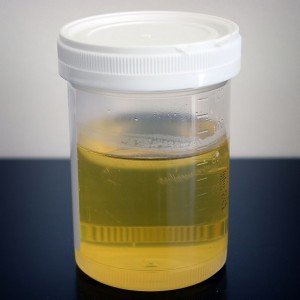
Imagine this: you’re driving home late one night after a long day. Maybe you had a drink earlier in the evening, or perhaps you took a prescription medication for a lingering headache. Suddenly, flashing red and blue lights appear in your rearview mirror. Your heart races as you’re pulled over. The officer suspects you’re driving under the influence, and after a field sobriety test, they ask you to provide a urine sample for an alcohol urine test. You’re confused, scared, and wondering what this all means for your future. If this feels like a nightmare you’re living, you’re not alone—many in New Mexico have found themselves in similar situations.
Facing a DUI charge is overwhelming, and the reliability of an alcohol urine test can play a pivotal role in your case. Are these tests accurate? Do they truly reflect impairment at the time you were driving? These questions are crucial because urine tests, unlike breath or blood tests, measure substances in your system that may have been consumed hours or even days earlier. Knowing the potential flaws and limitations of these tests can make all the difference in defending your case.That’s why having a knowledgeable attorney on your side is essential. A skilled DUI lawyer from the New Mexico Criminal Law Offices understands the science behind urine testing and the legal nuances that can challenge the results. They’ll scrutinize every detail—how the test was conducted, whether proper protocols were followed, and if the results are even admissible. With their help, you can fight for a fair outcome and move forward with confidence. Don’t let fear and uncertainty define this chapter of your life—take charge with the right guidance.
Alcohol Urine Test
Urine tests for alcohol levels are widely used in New Mexico DUI cases, and they are supposed to measure the presence of alcohol metabolites in your system. But they are far from perfect. Unlike breath or blood tests, which show alcohol levels at the time of testing, a DUI urine test detects byproducts and metabolites that can linger in your body for up to 48 hours or more after your body processes alcohol.
This extended detection period may result in misleading evidence, as the test cannot determine whether alcohol was consumed immediately before driving or several hours earlier. Therefore, urine tests cannot provide an accurate measurement of blood alcohol concentration (BAC) at the time of the alleged offense.
The accuracy of urine tests can also be compromised by factors such as the following:
- Improper handling of samples;
- Variability in alcohol absorption rates between individuals;
- Delayed testing, which allows bacteria to alter results;
- Errors caused by sample contamination or improper storage; and
- Medications or foods that mimic alcohol metabolites.
Given these factors, it is essential to challenge the reliability of urine tests when defending against DUI charges. A comprehensive defense strategy should include scrutinizing every detail of how the test was conducted and whether it can be considered valid evidence. The limitations discussed above provide a strong basis for your lawyer to challenge the validity of urine test results in court when facing DUI charges.
How Long Is Alcohol Detectable in Urine?
Above, we briefly discussed how long alcohol is detectable in urine. But it’s an important factor, so let’s dive in a little deeper. Alcohol metabolites can be present in urine for 12 to 48 hours on average, depending on several factors, including:
- Your hydration levels;
- The amount of alcohol consumed; and
- The time elapsed since consumption.
In cases of heavy drinking, alcohol detection can extend beyond 48 hours. Clearly, this lengthy detection period means that a urine test cannot reliably indicate impairment at the time of driving. A skilled attorney can mount a strong defense arguing that the presence of alcohol metabolites does not necessarily correlate with intoxication at the time of the alleged offense.
DUI Drug Test
Urine tests are also commonly used for DUI drug tests. These tests screen for a wide range of substances, including marijuana, cocaine, opioids, and prescription medications. However, like alcohol urine tests, drug tests do not measure real-time impairment.
As with alcohol, drug metabolites often remain in your body long after the effects of the drug have worn off. For instance:
- THC, the active compound in marijuana, can be detected in urine for days or even weeks after use;
- Cocaine metabolites may show up for several days; and
- Prescription medications may produce false positives depending on the dosage and individual metabolism.
These issues make urine tests unreliable for proving drug impairment at the time of driving. Successfully challenging the results of a DUI drug test can weaken the prosecution’s case and improve your chances of a favorable outcome.
New Mexico DUI Case Statistics
New Mexico courts take DUI charges seriously, as demonstrated by recent statistics.
In 2023, New Mexico state courts adjudicated 8,809 felony and misdemeanor DWI cases, with a 68.8% conviction rate. Furthermore, 29.5% of cases were dismissed, and 1.4% resulted in acquittals. Therefore, mounting a strong defense is essential, and challenging unreliable urine test results can be critical in avoiding a conviction or achieving a reduced charge.
Experienced New Mexico DUI Defense Lawyers Ready to Fight Your Case
If you’ve recently been arrested and charged with a DUI in New Mexico, you need a dedicated defense attorney who will take your case as seriously as you do. At the New Mexico Criminal Law Offices, we take pride in aggressively defending our clients by crafting compelling defenses designed to knock the legs out from underneath the prosecution’s case. Whether we’re challenging the traffic stop that resulted in your arrest or the chemical test that the government plans to use against you, we know exactly what to do to provide you with the defense you need and deserve. To schedule a free consultation today, call the New Mexico Criminal Law Offices or connect with us through our secure online contact form.

